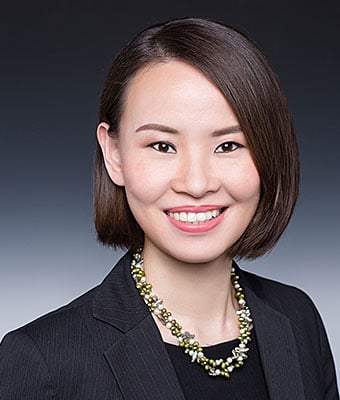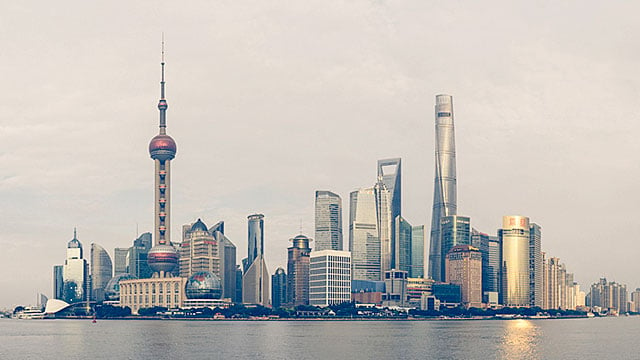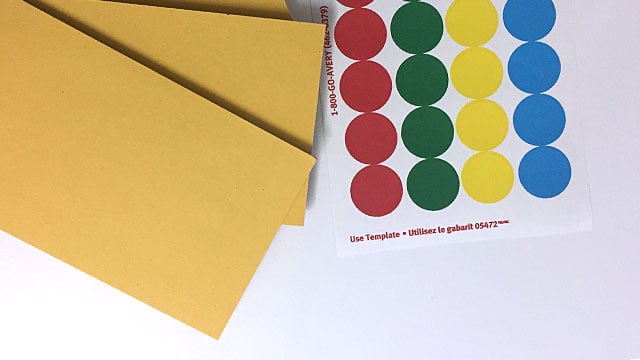(5 min read)
Based out of Shanghai, China, Colleen Gao is an Associate Principal at Korn Ferry Hay Group and works with top teams and leaders on a variety of interventions. An ExperienceInnovation™ Master Facilitator, she has facilitated more than 648 ExperienceInnovation participant experiences (so far!). We recently spoke about her work and learned a bit about top teams and their feelings, why design thinking has so much to offer the Chinese market, and the two critical items she brings to every facilitation experience.

Name: Colleen Gao
Home: Shanghai City, China
Number of Experiences: 648 ExperienceInnovation participant experiences...and counting!
Email: Colleen.Gao@kornferry.com
What do you love most about being a facilitator?
As a facilitator, the most enjoyable moment is when I’m able to provide a new perspective to help people understand things in a different way. In a way, I think ExperienceInnovation™ is a way to help people learn how to think in a different way. It’s not just providing the answer. It’s about how to see things, how to think about things, and how to integrate things—the angle is even more important. And I think what I enjoy most is providing that angle to the audience.
Can you tell us about your most impactful facilitation experience?
It was when I was leading a program in Singapore with a group of Malaysian leaders. During that time, a series of scandals had occurred in China, and as a result, this group refused to come to China. My session was talking about China—making it appealing and interesting. So I did a lot of research about China’s history and how it links to Malaysian history.
There’s a saying about China that it’s like the blind person touching the elephant: You have to go there and see it and then you can make your own judgment about it. So I wanted to give them a perspective that that would help them be more open-minded and have a more prepared mind to be more objective about things. It was a very emotional experience and a critical moment for me, in a way. It was a two-hour session, and we managed to turn around the situation. The leaders were very excited and looking forward to the next session. They ultimately came to China and were quite excited about it.
What are your future outlooks on design thinking and, specifically, the methodology and practice in China?
 Photo by Jannes Glas (CC by 2.0)
Photo by Jannes Glas (CC by 2.0)
I think design thinking is extremely valuable to the market here. It’s extremely valuable to everyone everywhere, but particularly here. There are many problems here—pollution, for example. And sometimes people complain a lot, but they don’t think about the solution. It’s why a lot of people are leaving. So I think that design thinking is a way to teach people to see every problem as an opportunity to solve. And the solution is about changing people’s behavior. That’s really a very deep statement about the psychology of human behavior. When you have that confidence, that optimism, you’re able to see solutions in the issues you face in daily life.
What session do you have coming up that you're particularly excited about?
I’m doing a project involving a top team management intervention. We just completed the first session, and the next session is in November. We are talking about the mission of the company. Because of factors in the industry, people are losing focus, others are leaving the company, even the top management team is a bit unstable. So I think it’s an important time to bring people together and help them realize that they need a very unifying mission in the organization. The market is actually getting better, but they need to prepare for the next downturn.
It’s hard to talk about mission sometimes because it can be related to emotion, and leaders tend to be very rational, so it’s hard for them to think about something so soft. In this team, none of the top leaders are female, so there’s no emotional space in the room at all! So I’m thinking of different ways to almost “massage their hearts” and let them find some feelings. It’s critical as a top team that they have a sense of mission if they want to lead a company that will last a hundred years. I’m really looking forward to it, and also preparing a lot for it.
If we could peer into your facilitation bag, what might we find?
I don’t carry a lot but there are two things I always carry: First is yellow sticky notes. I need them all the time. It’s really a survival tool for me. The other is the red dot stickers in ExperienceInnovation™ for when people are voting. Anything else you can ask the client for or get from the hotel, but those two things are unusually important, so I always bring them.

The yellow sticky notes are for helping people to diverge and the red dot stickers are for helping them to converge. And these are two critical things. A lot of times hotels don’t have the sticky notes, and a lot of times people have never even heard of the red dots, so that’s why it’s so important for me to carry them with me!
What are you most proud of?
It’s not necessarily something about being proud, but I feel grateful for people who’ve opened doors for me and enabled me to be where I am today. If I’m successful in my job it’s because of the people who opened doors for me—people like my ex-boss, Sam Lam at Linkage Asia, and ExperiencePoint’s Andrew Webster, who was a very good coach to me when I was becoming a Master Facilitator. He taught me to understand why people ask certain questions—not just how to address the difficult questions, but how to anticipate why people ask the questions. It took me in a different direction, and I’ve very much benefited from what he taught me.
If you could wake up tomorrow having gained one quality or ability, what would it be and why?
I’d like to be able to do things faster! There are a lot of things that I want to do, and I see people around me who can be very focused. I’d love to be able to improve my attention and focus.
If you could work alongside someone for the day, who would it be?
I’ve been thinking about that actually. I was reading some articles about great companies, and I was thinking: Who I would want to work for? What Elon Musk is doing is so cool, so I think working for him would be fun.